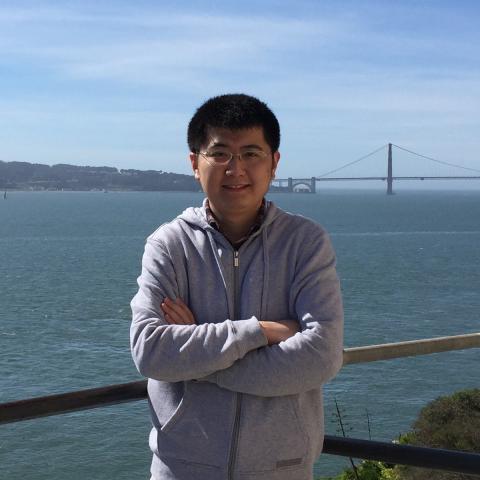ECE Ph.D. student Song Hu will receive an IEEE Microwave Theory and Techniques Society (MTT-S) Graduate Fellowship later this spring.
Song Hu will receive an IEEE Microwave Theory and Techniques Society (MTT-S) Graduate Fellowship later this spring. A Ph.D. student in the Georgia Tech School of Electrical and Computer Engineering (ECE), Hu is a member of the Georgia Tech Electronics and Micro-System (GEMS) Lab and is advised by ECE Assistant Professor Hua Wang.
Each year, about a dozen graduate students from universities around the world are selected for this honor and recognized for their outstanding research in microwave theory and microwave engineering. Hu will be presented with this award at the 2015 IEEE International Microwave Symposium (IMS), which will be held May 16-22 in Phoenix, Arizona. All of the awardees and their Ph.D. research will be featured in a future issue of IEEE Microwave Magazine.
Hu's award is based on his proposed Ph.D. research entitled "Digital Intensive Hybrid Architectures for Efficiency and Linearity Improvement in Silicon-Based RF Power Amplifiers." In this work, he explores advanced radio-frequency (RF) wireless transmitters with digital intensive architectures in highly scaled integrated circuit (IC) processes.
Leveraging the in-situ digital computation capabilities in scaled IC processes, these transmitter architectures can potentially achieve substantially enhanced large-signal RF transmitter performance, including linearity, bandwidth, robustness, and energy-efficiency, to meet increasingly stringent requirements in modern wireless systems. Compared with conventional RF transmitters, these digital intensive architectures are particularly conducive to full system-on-chip (SoC) integrations for next-generation, energy-efficient mobile devices or field-deployable wireless networks for both commercial and military applications.
Hu adds the IEEE MTT-S Graduate Fellowship to a list of outstanding achievements that include the 2014 IEEE Radio Frequency Integrated Circuit Symposium Best Student Paper Award Winner (1st Place), the 2014 IEEE Custom Integrated Circuits Conference Best Student Paper Award Finalist Co-Recipient, and the 2014 IEEE Solid-State Circuits Society Analog Devices Inc. Outstanding Student Designer Award.
